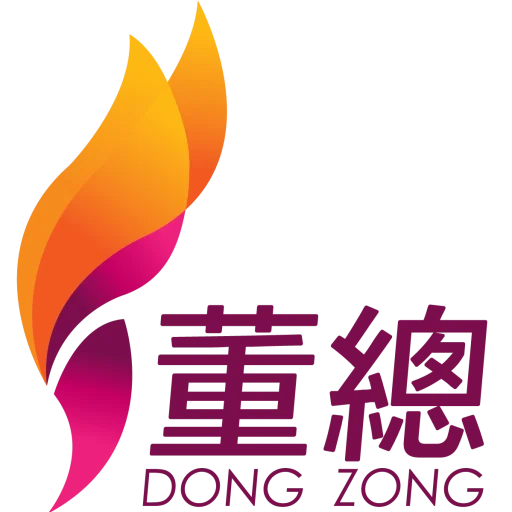Statement Released by Dong Zong
October 28, 2017
The Budget 2018 Is One of Unoriginal—
Dong Zong Laments over the Run-of-the-mill Budget
With respect to the unoriginal Budget 2018 submitted in the House of Representatives by the Prime Minister cum Finance Minister Mohammad Najib bin Tun Haji Abdul Razak, Dong Zong sorely regrets and is disappointed hereat, a responsive statement is thus forwarded:
(1) Dong Zong understands that all types of schools in the country are precious resources and preponderances as they contribute profusely in nurturing polymaths as well as upholding prosperity and advancement for the country. To our great regret, the Budget 2018 is one of unoriginal in terms of increase in appropriation for Chinese vernacular schools, etc. and it continues “skipping” appropriation for national-type secondary schools, including independent Chinese secondary schools.
(2) In the Budget 2018, RM 550 million is appropriated for the promotion and maintenance of seven types of schools. Of which, national primary schools are allocated 250 million, yet Chinese and Tamil vernacular schools, Catholic schools, full-boarding schools, government-funded religious schools, MARA Junior Science Colleges are each appropriated 50 million respectively.
(3) Records show that in both the Budget 2012 and 2013, a special funding of RM 100 million is appropriated to Chinese vernacular schools annually, yet the Budget from 2014 to 2018, merely RM 50 million is appropriated (see attached Table 1). In actuality, the appropriation distributed to Chinese vernacular primary schools has never been sufficient and just. With the acceleration of inflation, the meagre sum Chinese vernacular schools received cannot satiate their developmental needs and hence fund-raising events are staged constantly.
(4) Over time, it is a normalcy that Chinese independent secondary schools are not appropriated in the Budget pronounced every year. As such, Dong Zong had submitted a memorandum of understanding to the Malaysia Chinese Association, urging the alliance government to appropriate the least a total of RM85 million to all 60 Chinese independent secondary schools in the country, taking a RM1,000 allowance for each MICSS student as appropriation base. To our regret, in the Budget 2018 newly pronounced, as anticipated, no appropriation was budgeted to all the 60 independent Chinese secondary schools.
(5) Let alone there was appropriation given to reformed secondary schools (national-type secondary schools) in 2016, record shows in the Budget from 2012 to 2015, no special appropriation was allocated. Though after some efforts, in the Budget from 2012 to 2015 and 2017, appropriation was incorporated to national-type secondary schools as wished. Yet in the Budget 2018, the government’s former practice re-dominates and eventually no special appropriation was given to all national-type secondary schools.
(6) In view of the inconsistency, we earnestly hope the government will redress the practice., viz., to appropriate fairly to institutions inclusive of Chinese vernacular schools, independent Chinese secondary schools and national-type secondary schools, etc. Moreover, we wish the government will complete releasing the monies to the schools in the first half year so as to avoid serious impacts incurred due to delays in appropriation.
Table 1: Special Appropriation in the Budget from Year 2012 to 2018 (in RM)
| Year |
SMK |
SMJK (Chinese) |
SMJK (Tamil) |
National-type Secondary
Schools |
Catholic Secondary
Schools |
Full Boarding Schools |
Government-funded Religious Schools |
MARA Junior Science Colleges
|
Private Religious Schools |
Total |
| 2012 |
500 million |
100 million |
100 million |
No appropriation formerly, finally 20 million allocated |
100 million |
— |
100 million |
100 million |
— |
1 billion + 20 million |
| 2013 |
400 million |
100 million |
100 million |
No appropriation formerly, finally 30 million allocated |
100 million |
100 million |
100 million |
100 million |
— |
1 billion + 30 million |
| 2014 |
100 million |
50 million |
50 million |
No
appropriation formerly, finally 15 million allocated |
50 million |
50 million |
50 million |
50 million |
50 million
(People’s Religious Schools) |
450 million + 15 million |
| 2015 |
450 million |
50 million |
50 million |
25 million |
50 million |
50 million |
50 million |
50 million |
25 million |
800 million |
| 2016 |
No appropriation pronounced formerly. The appropriation allocated to SMJK (Chinese), SMJK (Tamil), Catholic Secondary and National-type Secondary was released only a year later, i.e. 2017. |
500 million |
| Not Known |
50 million |
16.5 million |
15 million |
16.5 million |
Not Known |
Not Known |
Not Known |
Not Known |
| 2017 |
250 million |
50 million |
50 million |
No appropriation formerly, finally 15 million allocated |
50 million |
50 million |
50 million |
50 million |
50 million |
600 million + 15 million |
| 2018 |
250 million |
50 million |
50 million |
— |
50 million |
50 million |
50 million |
50 million |
— |
550 million |
Notes:
1. Budget 2012: six types of schools received a special appropriation totalled RM1 billion. National primary schools received RM500 million; whereas SMJK (Chinese), SMJK (Tamil), Catholic schools, government-funded religious schools and MARA junior colleges received RM100 million each.
2. Budget 2013: seven types of schools received a special appropriation totalled RM1 billion. National primary schools received RM400 million; whereas SMJK (Chinese), SMJK (Tamil), Catholic schools, government-funded religious schools, full-boarding schools and MARA junior colleges received RM100 million each.
3. Budget 2014: eight types of schools received a special appropriation totalled RM450 million. National primary schools received RM450 million; whereas SMJK (Chinese), SMJK (Tamil), Catholic schools, full-boarding schools, MARA junior colleges, government-funded religious schools and people’s religious schools received RM50 million each.
4. Budget 2015: nine types of schools received a special appropriation totalled RM800 million. National primary schools received RM450 million; whereas SMJK (Chinese), SMJK (Tamil), Catholic schools, full-boarding schools, government-funded religious schools and MARA junior colleges received RM50 million each. Private religious schools (registered) and national-type secondary schools received RM25 million each.
5. Budget 2016: nine types of schools received a special appropriation totalled RM500 million. National primary schools, SMJK (Chinese), SMJK (Tamil), Catholic schools, full-boarding schools, government-funded religious schools, MARA junior colleges, private religious schools (registered), and national-type secondary schools were appropriated respectively but no figures were disclosed.
6. Budget 2017: eight types of schools received a special appropriation totalled RM600 million. National primary schools received RM250 million; whereas SMJK (Chinese), SMJK (Tamil), Catholic schools, full-boarding schools, government-funded religious schools, private religious schools (registered) and MARA junior colleges received RM50 million each.
7. Budget 2018: seven types of schools received a special appropriation totalled RM550 million. National primary schools received RM250 million; whereas SMJK (Chinese), SMJK (Tamil), Catholic schools, full-boarding schools, government-funded religious schools and MARA junior colleges received RM50 million each.


